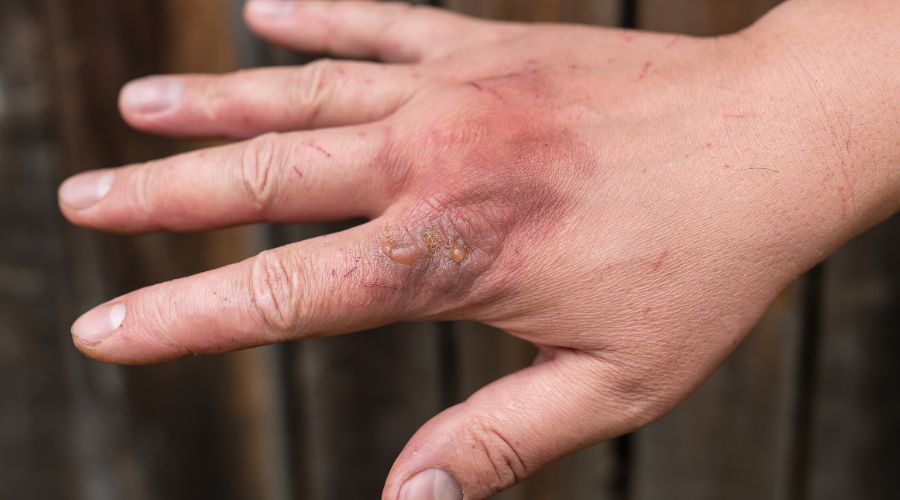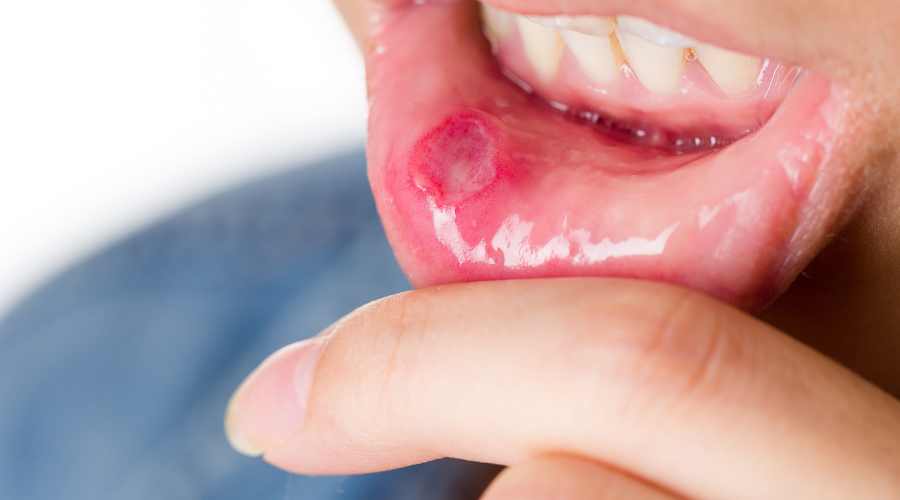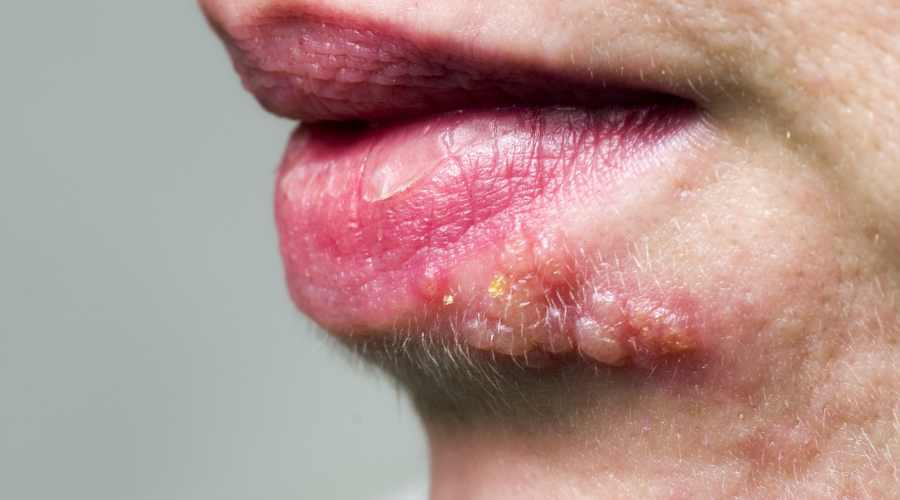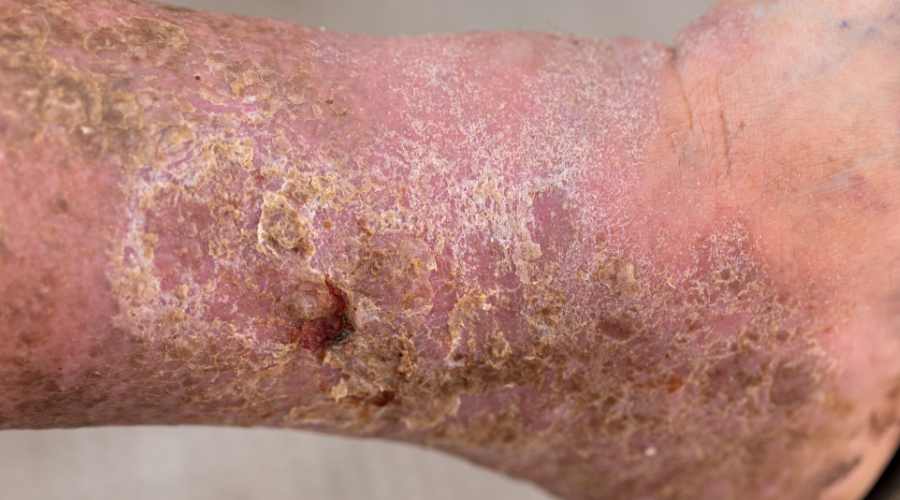List of Diseases Aloe Vera Can Treat (Backed by Science)
Step into a world where a humble green plant does wonders.
We’re not talking about fairy tales, but good old Aloe Vera.
Our ancestors had a hunch about its magic, and now, scientists are nodding in agreement.
So, come along, we’re going deep into what Aloe Vera can really do, and trust me, it’s more than just soothing sunburns.
1. Burn Wounds

Burn wounds are among the most traumatic injuries to the skin, often resulting in severe pain, potential scarring, and prolonged healing times. Over the years, various treatments have been employed to alleviate pain and expedite healing. Aloe vera has emerged as a popular and effective remedy for burn wounds.
How Aloe Vera Helps with Burn Wounds:
Aloe vera, often called the ‘burn plant’, contains a gel-like substance in its leaves packed with various beneficial compounds. Here’s how this remarkable plant aids in the treatment of burn wounds:
- Cooling Effect: Upon application, Aloe vera provides an immediate cooling sensation, offering relief from the intense heat and discomfort of a burn.
- Anti-inflammatory Properties: Aloe vera contains compounds like glycoproteins and polysaccharides, which help reduce inflammation and swelling at the burn site.
- Moisturising Abilities: The gel from the Aloe vera plant is a natural moisturiser. It keeps the skin hydrated, preventing it from drying out and becoming more damaged. This hydration also aids in the prevention of scarring.
- Promotes Healing: Aloe vera accelerates skin cell regeneration. The increased rate of cell turnover ensures that the damaged skin is replaced more quickly, leading to faster healing times.
- Antibacterial Qualities: The plant has inherent antibacterial properties that prevent infections in the burn wound, a common complication that can delay healing and worsen the condition.
- Pain Relief: Aloe vera contains natural pain-relieving properties that can soothe the pain associated with burns, reducing the need for synthetic painkillers.
- Rich in Vitamins and Minerals: Aloe vera gel is rich in vitamins, especially vitamin E and C, and minerals. These nutrients are essential for skin health and repair.
In conclusion, Aloe vera is not just a traditional remedy but a scientifically-backed solution for burn wounds. Its multifaceted healing properties make it a go-to choice for many when dealing with burns, offering relief, promoting healing, and ensuring the best possible outcome for the skin.
Scientific Research Backing Up Aloe Vera’s Usefulness with Burn Wounds
- Title: A Comparative Study of the Impacts of Aloe vera Gel and Silver Sulfadiazine Cream 1% on Healing, Itching and Pain of Burn Wounds: A Randomized Clinical Trial
- Authors: Maryam Mahboub, Ahmad Mirza Aghazadeh Attari, Z. Sheikhalipour, Mohammad Mirza Aghazadeh Attari, B. Davami, Alireza Amidfar, M. Lotfi
- Publication Date: 2021-10-23
- Abstract: This study aimed to evaluate the impact of the Aloe vera gel on healing, itching, and pain of burn patients. The results showed that Aloe vera is an effective agent in reducing itching and pain, and it can substantially increase the rate of healing. Accordingly, this agent can be considered in the treatment of burn wounds.
- PDF Link
- Title: Activity of a Gel Combination of Aloe Vera (Aloe Vera (L) Burm.F.) and Snail Mucus (Achatina fulica (Ferussac, 1821)) on Burn Wounds in Male White Rats (Rattus norvegicus) Wistar Strains
- Authors: Artha Yuliana Sianipar, Andre Prayoga, Agrecia Yolanda Nainggolan
- Publication Date: 2023-05-14
- Abstract: This research aimed to determine the combination of Aloe vera and snail mucus used to treat burns and determine the optimal formula. The results showed that the combination gel made a homogenous formulation and had an effect on healing burns, with the 10%:20% combination accelerating the optimal healing process.
- PDF Link
- Title: ALOE VERA VS. SILVER SULFADIAZINE FOR TREATING SECOND-DEGREE BURN WOUNDS: EVIDENCE-BASED CASE REPORT
- Authors: C. Menna, N. Calista, Leorca Aurino, Adisti Dwijayanti
- Publication Date: 2019-04-12
- Abstract: This work compared Aloe vera to SSD for second-degree burn wounds. Each of the three articles stated that Aloe vera was more effective than SSD for treating second-degree burn wounds.
- PDF Link
- Title: Polymeric Films Loaded with Vitamin E and Aloe vera for Topical Application in the Treatment of Burn Wounds
- Authors: Gabriela G Pereira, S. Guterres, A. G. Balducci, P. Colombo, F. Sonvico
- Publication Date: 2014-01-12
- Abstract: This research aimed to develop and evaluate polymeric films containing Aloe vera and vitamin E to treat wounds caused by burns. The results obtained show that the bioadhesive films containing vitamin E acetate and Aloe vera could be an innovative therapeutic system for the treatment of burns.
- PDF Link
2. Mouth Sores

Mouth sores, commonly known as ulcers or canker sores, can be a source of great discomfort, often hindering daily activities like speaking, eating, and drinking. These painful lesions can arise due to various reasons, including stress, injury, certain foods, or underlying medical conditions. Over the years, Aloe vera has been increasingly recognised as a potent remedy for these troublesome sores.
How Aloe Vera Helps with Mouth Sores:
Aloe vera has a gel in its fleshy leaves laden with beneficial compounds. Here’s a breakdown of how this plant aids in the alleviation and healing of mouth sores:
- Soothing Effect: Aloe vera gel provides an immediate soothing sensation upon application, helping to alleviate the burning or tingling sensation often associated with mouth sores.
- Anti-inflammatory Properties: The gel is rich in compounds like glycoproteins and polysaccharides, which work in tandem to reduce inflammation and redness around the sore, promoting faster healing.
- Natural Antiseptic: Aloe vera boasts inherent antibacterial and antiviral properties. This means that when applied to mouth sores, it can prevent bacterial infections, a common complication that can exacerbate the condition.
- Cell Regeneration: The plant is known to accelerate the process of cell regeneration. This means that the damaged tissue in and around the mouth sore is repaired more swiftly, leading to quicker healing times.
- Moisturising Abilities: Aloe vera gel acts as a natural moisturiser, ensuring that the affected area remains hydrated. This is crucial as a dry environment can delay the healing of mouth sores.
- Rich in Vitamins and Minerals: The gel is a treasure trove of essential vitamins and minerals, particularly vitamins B, C, E, and folic acid, all of which play a pivotal role in oral health and tissue repair.
- Natural Analgesic: Aloe vera contains natural pain-relieving properties, offering relief from the discomfort and pain caused by mouth sores.
In conclusion, Aloe vera is not merely a traditional remedy but a scientifically-backed solution for mouth sores. Its multifaceted healing properties make it a preferred choice for many when grappling with painful oral ulcers, ensuring swift relief and promoting optimal healing.
Scientific Research Backing Up Aloe Vera’s Usefulness with Mouth Sores
- Comparison of Antimicrobial and Wound Healing Agents on Oral Fibroblast Viability and In-vivo Bacterial Load
- Abstract: This study compared various oral rinses, including those based on Aloe vera, for their potential toxic effects on gingival fibroblasts and their bactericidal effects. The results suggest that while some antimicrobial rinses can be harmful to gingival fibroblasts, a restorative rinse with Aloe vera was not toxic to these cells and still showed antimicrobial effects.
- Authors: J. Bowen, C. Cole, R. Mcglennen
- Publication Date: 14 May 2015
- Link to the full paper
- Antibacterial Efficacy of Aloe Vera Extract Mouth Wash versus Chlorhexidine in Pediatrics: An in Vivo Study
- Abstract: This study assessed and compared the antibacterial efficacy of Aloe vera extract solution and chlorhexidine as mouth washes for children. The results showed that Aloe vera mouth wash has a comparable antibacterial effect to chlorhexidine mouth wash when used for children’s oral health care.
- Authors: E. Mohamed, S. Sayed, S. Zaghloul
- Publication Date: 1 July 2020
- Link to the full paper
- Effect of topical aloe vera gel on gingival crevicular fluid interleukin-1 beta and interleukin-17 levels in patients with chronic periodontitis; A double-blind split-mouth randomized clinical trial
- Abstract: This study investigated the effect of topical aloe vera gel, associated with scaling and root planing, on interleukin-1 and interleukin-17 of gingival crevicular fluid levels in chronic periodontitis patients. The results showed that topical aloe vera gel in combination with SRP significantly improved clinical parameters of periodontitis and decreased IL-1β and IL-17 GCF levels.
- Authors: Masoumeh Faramarzi, A. Khorramdel, A. Babaloo, M. Sadighi, Ali Sadaghian
- Publication Date: 9 February 2023
- Link to the full paper
- Evaluation of Aloe vera as a Natural Pharmaceutic in Mouthwashes: A Narrative Review
- Abstract: This narrative review evaluated Aloe vera as a natural ingredient in mouthwashes. The study found that Aloe vera mouthwash effectively reduced the severity of radiation-induced mucositis, periodontal disease, the amount of S. mutans, and other situations requiring a mouth rinse for the acceleration of treatment.
- Authors: Delaram Poorkazemi, Ali Malekzadeh Shafaroudi, Pegah Nasiri, M. Aarabi, Javad Mehrani Sabet
- Publication Date: 8 September 2022
- Link to the full paper
These studies provide evidence of the beneficial effects of Aloe vera in treating mouth sores and related oral conditions.
3. Diabetes

Diabetes, a condition characterised by prolonged high blood sugar levels, has become a global health concern, affecting millions worldwide. This metabolic disorder can lead to severe complications if not managed effectively, including damage to the eyes, kidneys, and cardiovascular system. Traditional medicines have long turned to nature for remedies, and in this context, Aloe vera emerges as a promising ally in the fight against diabetes.
How Aloe Vera Helps with Diabetes:
Aloe vera boasts a range of medicinal properties beneficial for those with diabetes. Here’s how this succulent plant aids in diabetes management:
- Natural Antihyperglycemic: Aloe vera contains compounds that help lower blood sugar levels. Regular consumption or application of Aloe vera extracts has shown a significant reduction in fasting blood glucose levels in both pre-diabetic and diabetic individuals.
- Rich in Nutrients: The gel from Aloe vera leaves is packed with essential vitamins, minerals, and enzymes. These nutrients can aid in enhancing insulin sensitivity and improving blood sugar management.
- Anti-inflammatory Properties: Chronic inflammation is often linked to the onset of diabetes. Aloe vera, with its anti-inflammatory compounds, can help reduce this inflammation, potentially lowering the risk of diabetes progression.
- Antioxidant Abilities: Oxidative stress plays a role in the worsening of diabetes and its complications. Aloe vera is rich in antioxidants that combat this oxidative stress, offering protection to cells and tissues.
- Lipid Regulation: Apart from blood sugar, Aloe vera also aids in regulating blood lipid levels, reducing ‘bad’ cholesterol, which is crucial for diabetic individuals who are at a higher risk of cardiovascular diseases.
- Wound Healing: Diabetic individuals often face delayed wound healing. Aloe vera, renowned for its healing properties, can expedite healing, especially for diabetes-related skin conditions.
- Digestive Health: A healthy gut can influence blood sugar regulation. Aloe vera promotes good digestive health, ensuring better absorption of nutrients and potentially aiding in better diabetes management.
In conclusion, Aloe vera is not just a plant for topical applications but a potent medicinal herb offering multiple benefits for diabetes management. Its multifaceted properties make it a valuable addition to the arsenal of natural remedies for diabetes. However, as with all treatments, it’s essential to consult with healthcare professionals before incorporating Aloe vera into a diabetes care regimen.
Scientific Research Backing Up Aloe Vera’s Usefulness with Diabetes
- Aloe vera and Streptozotocin-Induced Diabetes Mellitus
- Abstract: This study delves into the effects of Aloe vera on diabetes mellitus, a condition characterised by prolonged hyperglycemia. Aloe vera, abundant in bioactive chemicals like alkaloids, anthraquinones, and enthrones, has therapeutic properties such as antioxidant, anti-inflammatory, neuro-protective, and anti-diabetic effects. The article reviews the impact of Aloe vera on streptozotocin-induced diabetes mellitus, highlighting its role in various biological functions.
- Authors: Fatemeh Haghani, M. Arabnezhad, Salman Mohammadi, Ali Ghaffarian‑Bahraman
- Publication Date: 10 March 2022
- Link to the full paper
- DELIGHT DIABETO: PUDING MANGOSTANA NATA DE ALOE VERA SEBAGAI NEUTRACEUTICAL FOOD UNTUK MEMBANTU MENGONTROL KADAR GULA DARAH PADA PENDERITA DIABETES MELITUS
- Abstract: This research focuses on the creation of a pudding from mangosteen peel and aloe vera as nutraceutical food ingredients to aid in controlling blood sugar levels. The study found that mangosteen peel contains xanthones with antidiabetic therapeutic effects, while aloe vera contains polysaccharides and phytosterols.
- Authors: F. Yahya, Noor Roziq Ghulam Perdana
- Publication Date: 24 May 2022
- Link to the full paper
- The effect of Aloe vera on fasting blood glucose levels in pre-diabetes and type 2 diabetes mellitus: A systematic review and meta-analysis
- Abstract: This systematic review and meta-analysis evaluates the effect of Aloe vera on fasting blood glucose in pre-diabetes and type 2 diabetes mellitus. The results indicate that Aloe vera significantly reduces fasting blood glucose. The study suggests that Aloe vera may be beneficial for blood glucose control, but further research with a well-designed approach and standardized preparation is recommended.
- Authors: Indah Budiastutik, H. Subagio, M. Kartasurya, B. Widjanarko, A. Kartini, Soegiyanto Soegiyanto, Suhartono Suhartono Suhartono Suhartono
- Publication Date: 1 July 2022
- Link to the full paper
4. Herpes

Herpes, a common viral infection caused by the Herpes simplex virus (HSV), manifests in two primary forms: HSV-1, typically affecting the mouth and lips, and HSV-2, which predominantly targets the genital region. Characterised by painful blisters and sores, herpes can be a recurrent nuisance, often flaring up during times of stress or weakened immunity. While there is no cure for herpes, managing its symptoms and reducing the frequency of outbreaks is crucial for those affected.
Aloe vera has been utilised in traditional medicine systems across the globe, from Ayurveda to ancient Egyptian remedies. But how exactly does this green wonder assist those grappling with herpes?
The Healing Power of Aloe Vera on Herpes
- Antiviral Properties: Aloe vera contains potent bioactive compounds that have demonstrated antiviral activity against a range of viruses, including both HSV-1 and HSV-2. By inhibiting the replication of the virus, Aloe vera can reduce the severity and duration of herpes outbreaks.
- Soothing Effect: The gel extracted from Aloe vera leaves is inherently cooling and can provide immediate relief from the itching and burning sensations associated with herpes sores.
- Skin Repair: Rich in vitamins, enzymes, and amino acids, Aloe vera promotes skin regeneration. Accelerating the healing process aids in the faster resolution of herpes blisters and prevents potential scarring.
- Immune Boosting: Regular application or consumption of Aloe vera can bolster the immune system, making the body more resilient against herpes flare-ups.
- Natural Moisturiser: Keeping affected skin hydrated is essential during a herpes outbreak. Aloe vera acts as a natural moisturiser, preventing the skin from drying out and reducing the risk of secondary infections.
In conclusion, while Aloe vera isn’t a cure for herpes, its multifaceted healing properties make it a valuable ally in managing and mitigating the discomfort associated with this viral infection. For those seeking a natural approach to herpes management, Aloe vera offers a promising, time-tested solution. As always, it’s advisable to consult with a healthcare professional before starting any new treatment regimen.
Scientific Research Backing Up Aloe Vera’s Usefulness with Herpes
- Aloe vera (L.) Burm. F. as a Potential Anti-COVID-19 Plant: A Mini-review of Its Antiviral Activity
- Abstract: This study reviews the literature on the virucidal and cytotoxic properties of Aloe vera. The literature shows that the plant has antiviral activity on several types of viruses, including Herpes simplex virus type 1 and Herpes simplex virus type 2. The study suggests that molecules of Aloe vera could participate in the antiviral action against various viruses.
- Authors: P. Mpiana, K. Ngbolua, D. Tshibangu, and others.
- Publication Date: 24 May 2020
- Link to the full paper
- A REVIEW ON ALOE VERA-THE WONDER MEDICINAL PLANT
- Abstract: Aloe vera, a succulent plant, is known for its medicinal properties. It has been used in various traditional medicines to treat a range of ailments. The plant also treats burn wounds, minor cuts, genital herpes, and seborrheic dermatitis. The gel from Aloe vera leaves contains numerous bioactive compounds that exhibit various therapeutic values.
- Author: Suseela Lanka
- Publication Date: 15 October 2018
- Link to the full paper
- Propriedades farmacológicas da Aloe vera (L.) Burm. f.
- Abstract: This article discusses the pharmacological properties of Aloe vera. The plant has been used for thousands of years in traditional medicine to treat various ailments. The article highlights the antiviral activity of Aloe vera on several viruses, including Herpes simplex virus.
- Authors: V. S. Freitas, Rodney Alexandre Ferreira Rodrigues, F.O.G. Gaspi, and others.
- Publication Date: 1 June 2014
- Link to the full paper
- TATALAKSANA RECURRENT INTRA ORAL HERPES DISERTAI CANDIDIASIS YANG DIRUJUK OLEH DERMATOLOGIST
- Abstract: This paper discusses the management of recurrent intraoral herpes accompanied by candidiasis. The article mentions the use of Aloe vera extract as part of the treatment for herpes.
- Authors: R. Ganesha, D. Setyaningtyas, E. DiahSavitri, and others.
- Publication Date: 18 June 2020
- Link to the full paper
5. Bed Sores

Bed sores, also known as pressure ulcers or decubitus ulcers, are a prevalent concern for individuals who spend extended periods in bed or are immobile. These sores are not just painful but can lead to severe complications if not addressed promptly. Over the years, various treatments have been explored to alleviate and heal bed sores, and one natural remedy that has garnered attention is Aloe vera.
Understanding Bed Sores:
Bed sores develop when prolonged pressure is applied to specific areas of the body, restricting blood flow. Commonly affected areas include the tailbone, shoulder blades, heels, and ankles. The lack of blood flow can cause the skin and underlying tissue to become damaged, leading to painful ulcers. These ulcers can progress to more severe stages if untreated, even exposing the underlying bone or muscle.
How Aloe vera can help with bed sores
Aloe vera’s gel is packed with nutrients, enzymes, and compounds that offer anti-inflammatory, antimicrobial, and skin-repairing benefits.
- Moisturising Properties: Aloe vera gel provides a protective barrier to hydrate skin. Moist environments can accelerate the healing process and prevent the skin from drying out, a common issue with bed sores.
- Anti-inflammatory Benefits: The gel from the Aloe vera plant contains compounds that reduce inflammation, helping to soothe pain and reduce redness around the sore.
- Antimicrobial Action: Bed sores are susceptible to bacterial infections, which can exacerbate the condition. Aloe vera possesses antimicrobial properties that can prevent infections, ensuring the ulcer doesn’t worsen.
- Stimulates Cell Growth: Aloe vera promotes the production of collagen, a protein essential for skin repair. Stimulating cell growth aids in the faster healing of bed sores.
While Aloe vera offers promising benefits in the treatment of bed sores, it’s essential to approach its use as a complementary treatment. Regular monitoring by healthcare professionals, maintaining cleanliness, and repositioning are crucial in the comprehensive care of bed sores. If you or a loved one are dealing with bed sores, consider incorporating Aloe vera into the care routine, but always consult with a healthcare professional before making any changes to treatment plans.
Scientific Research Backing Up Aloe Vera’s Usefulness with Bed Sores
- The effect of Aloe Vera gel on prevention of pressure ulcers in patients hospitalized in the orthopedic wards: a randomized triple-blind clinical trial
- Abstract: This study investigated the effect of Aloe Vera gel on the prevention of pressure ulcers in patients hospitalized in the orthopedic ward. The results showed that Aloe Vera gel could prevent the occurrence of pressure ulcers in the intervention group.
- Authors: D. Hekmatpou, F. Mehrabi, K. Rahzani, Atefeh Aminiyan
- Publication Date: 2018-09-29
- Link to the full article
- Effect of aloe vera pulp on pressure ulcers among bed ridden patients
- Abstract: This study assessed the effectiveness of aloe vera pulp on pressure ulcers among bedridden patients. The results revealed that the application of aloe vera pulp, along with daily nursing care, was effective in reverting the condition of affected skin and also helped in reducing pain.
- Authors: Mrs. Nikita Bhandari, Mr. Basavant Dhudum
- Publication Date: 2022-11-05
- Link to the full article
6. Wounds
Wounds, whether minor cuts or deeper gashes are a common part of our lives. From accidental scrapes to surgical incisions, our skin is often subjected to injuries that need care and attention. While there are numerous treatments available, one natural remedy that has stood the test of time is Aloe vera.
Understanding Wounds:
The skin, our body’s largest organ, acts as a protective barrier against external threats. The body initiates a complex healing process when this barrier is breached due to injuries. This process involves inflammation, tissue formation, and remodelling. Any disruption or delay in this sequence can lead to prolonged healing or even complications.
The Healing Power of Aloe Vera:
- Natural Antiseptic: Aloe vera contains compounds like anthraquinones, which possess antibacterial, antiviral, and antifungal properties. This helps prevent wound infections, a common concern that can delay healing.
- Anti-inflammatory Properties: The gel from Aloe vera is rich in enzymes and compounds that reduce inflammation. Curbing swelling and redness provides relief and accelerates the healing process.
- Stimulates Collagen Production: Collagen is a protein essential for wound healing. Aloe vera promotes collagen synthesis, ensuring that the wound heals properly and reduces the chances of scarring.
- Moisturising Effect: A moist wound environment is conducive to healing. Aloe vera gel provides hydration, preventing the wound from drying out and becoming more susceptible to infections.
- Rich in Nutrients: Aloe vera is packed with vitamins, minerals, and amino acids that nourish the skin and support the body’s natural healing mechanisms.
Aloe vera, often dubbed the ‘burn plant’ or ‘miracle plant’, has been used for centuries across cultures for its wound-healing abilities. Its natural compounds work in synergy to soothe, nourish, and repair damaged skin. While Aloe vera offers a holistic approach to wound care, it’s essential to remember that severe or infected wounds require medical attention. Incorporating Aloe vera into your wound care routine can be beneficial, but always consult with a healthcare professional for comprehensive care.
Scientific Research Backing Up Aloe Vera’s Usefulness with Wounds
- Efektivitas wound healing sheet ekstrak Aloe vera dan albumin telur ayam kampung (Gallus domesticus) terhadap penyembuhan luka insisi gingivaWound healing sheet with Aloe vera extract and free-range chicken egg albumin (Gallus domesticus) for healing of gingival incisions
- Abstract: This study investigated the effectiveness of a wound healing sheet made from Aloe vera leaf extract and chicken egg albumin for healing gingival incision wounds. The results showed that the wound healing sheet was effective in promoting wound healing.
- Authors: Alya Ghina Rosyada, Wizni A’dila A’ziza, Myrna Evana Amanda Putri, Mutia Rochmawati
- Publication Date: 2022-07-04
- Link to the full article
- Effects of Ozonized Aloe Vera Oil on Full-Thickness Excision Wound Healing: In Vivo Study
- Abstract: This study examined the effects of ozonized Aloe vera oil on full-thickness excision wound healing. The results revealed that ozonized Aloe vera oil promotes wound tissue repair in vivo.
- Authors: Eva Gunawan, Muhamad Thohar Arifin, Yuriz Bakhtiar, Yan Wisnu Pradjoko, Muhammad Nur
- Publication Date: 2022-07-22
- Link to the full article
- Effect of Combination of Hypericum perforatum, Calendula officinalis and Aloe vera Plant Extracts on Incisional Wound Healing
- Abstract: This research evaluated the effects of a combination of Hypericum perforatum, Calendula officinalis, and Aloe vera plant extracts on incisional wound healing. The findings indicated that the combination of these extracts promoted wound healing.
- Authors: Sultan Kaya, Şevkinaz Doğan, M. Ateş
- Publication Date: 2022-12-14
- Link to the full article
- Aloe Vera Gel Accelerates Wound Healing in Oral Mucosa by Promoting Epithelialization and Cell Proliferation (Fibroblasts)
- Abstract: This study explored the effects of Aloe vera gel on wound healing in the oral mucosa. The results demonstrated that Aloe vera gel accelerates wound healing by promoting epithelialization and fibroblast cell proliferation.
- Authors: M. Rashid, Nedal Iqbal, A. Bashir, Ruhina Ali, S. Rasheed, Sehrish Naz
- Publication Date: 2022-01-16
- Link to the full article
Conclusion
Aloe vera, a humble succulent, has proven its mettle beyond mere aesthetics. Its potent healing properties, backed by scientific research, make it a versatile remedy for a myriad of ailments ranging from burns and wounds to more complex conditions like diabetes and herpes.
As with all natural treatments, its efficacy is most pronounced when used judiciously and in conjunction with professional medical advice.
Aloe vera stands tall as a testament to nature’s innate ability to heal and nurture in a world increasingly leaning towards organic and holistic solutions. Embracing its benefits can pave the way for a more natural, effective, and compassionate approach to healthcare.
References
- Sianipar AY, Prayoga A, Nainggolan AY. Activity of a Gel Combination of Aloe Vera (Aloe Vera (L) Burm.F.) and Snail Mucus (Achatina fulica (Ferussac, 1821)) on Burn Wounds in Male White Rats (Rattus norvegicus) Wistar Strains. Indonesian Journal of Pharmaceutical Education [Internet]. 2023 [cited 2023 Sep 8]; 3(2). Available from: https://ejurnal.ung.ac.id/index.php/ijpe/article/view/19343.
- Menna C, Calista N, Aurino L, Dwijayanti A. ALOE VERA VS. SILVER SULFADIAZINE FOR TREATING SECOND-DEGREE BURN WOUNDS: EVIDENCE-BASED CASE REPORT. International Journal of Applied Pharmaceutics [Internet]. 2019 [cited 2023 Sep 8]; 146–8. Available from: https://journals.innovareacademics.in/index.php/ijap/article/view/33580.
- Pereira GG, Guterres SS, Balducci AG, Colombo P, Sonvico F. Polymeric Films Loaded with Vitamin E and Aloe vera for Topical Application in the Treatment of Burn Wounds. BioMed Research International [Internet]. 2014 [cited 2023 Sep 8]; 2014:e641590. Available from: https://www.hindawi.com/journals/bmri/2014/641590/.
